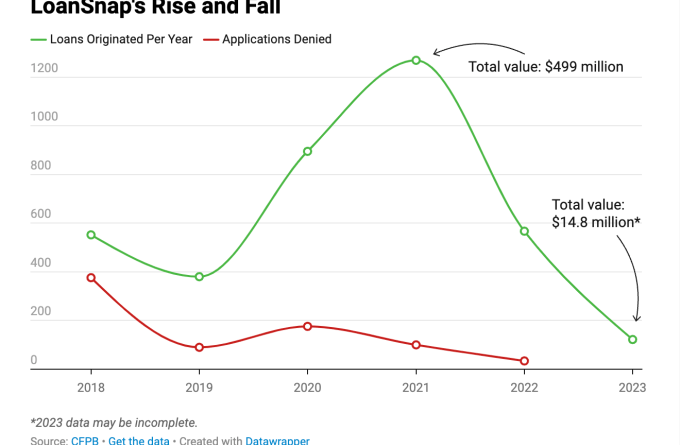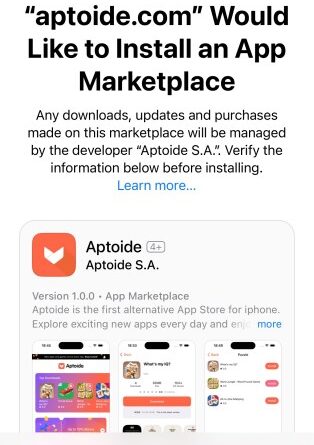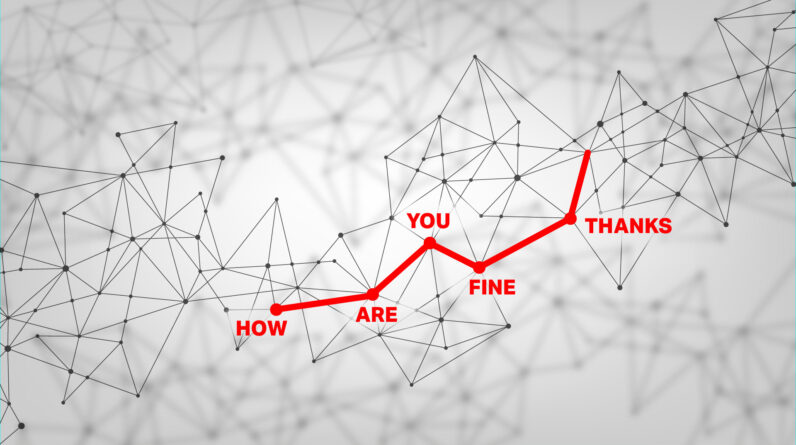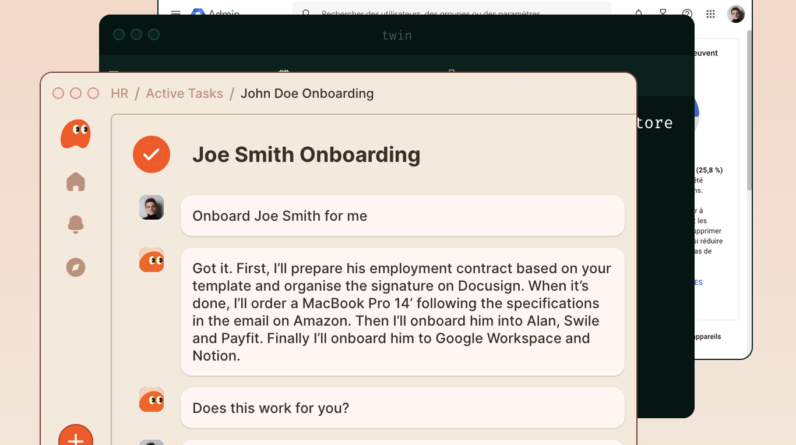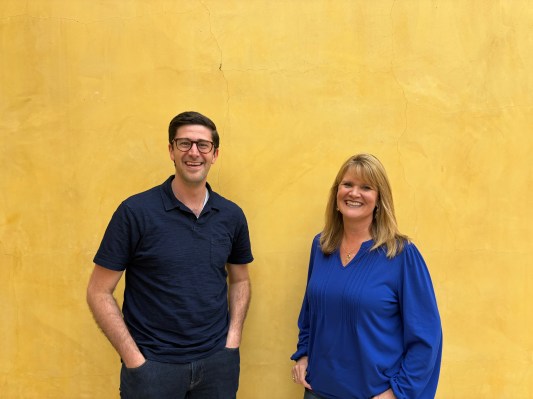
[ad_1]
AI is everywhere, and predictably, sales teams are among the early adopters. So I wasn’t surprised to see Scalestack raise $1 million to help make sales teams’ lives easier.
So, as we’ve done every week for the past 18 months or so (I can’t believe this is going to be the 75th pitch deck teardown!), we’re going to put the deck Scalestack used to raise its round under the proverbial microscope and see what it got right and where it could have done better.
Let’s go!
We’re looking for more unique pitch decks to tear down, so if you want to submit your own, here’s how you can do that.
Slides in this deck
Scalestack closed its $1 million round with an 18-slide deck. The company left all the slides in, but redacted some revenue figures and MongoDB’s ROI from its product:
- Cover slide
- Team slide
- Summary/traction slide
- Problem slide
- Problem impact slide 1
- Problem impact slide 2
- Problem impact slide 3
- Solution slide
- Traction slide
- Customer story slide 1
- Customer story slide 2
- How it works slide
- Product slide
- Market slide
- Competition slide
- Positioning slide
- Why now slide
- Closing slide
Three things to love
Over the past couple of months, I’ve been experimenting with building an AI-powered deck review tool. It gave this deck only a 67% chance of raising money (you can see the full report here). Of course, Scalestack did raise money, and it did a bunch of things extremely well, which shows that AI has a long way to go.
Taking a closer look at Scalestack’s deck, I’m not surprised the company raised money. It has three big things going for it: a killer team, impressive traction, and a customer testimonial to die for.
A great team
A company’s team is its heart and soul. In the early days of a startup, when there might not be a substantial track record or extensive financial data, the team’s background and capabilities can be one of the most persuasive aspects of your pitch.
It’s essential to present your team effectively and showcase why they are the right people to bring the business to success. That’s what Scalestack got right, and it cleverly starts the story with a team slide.
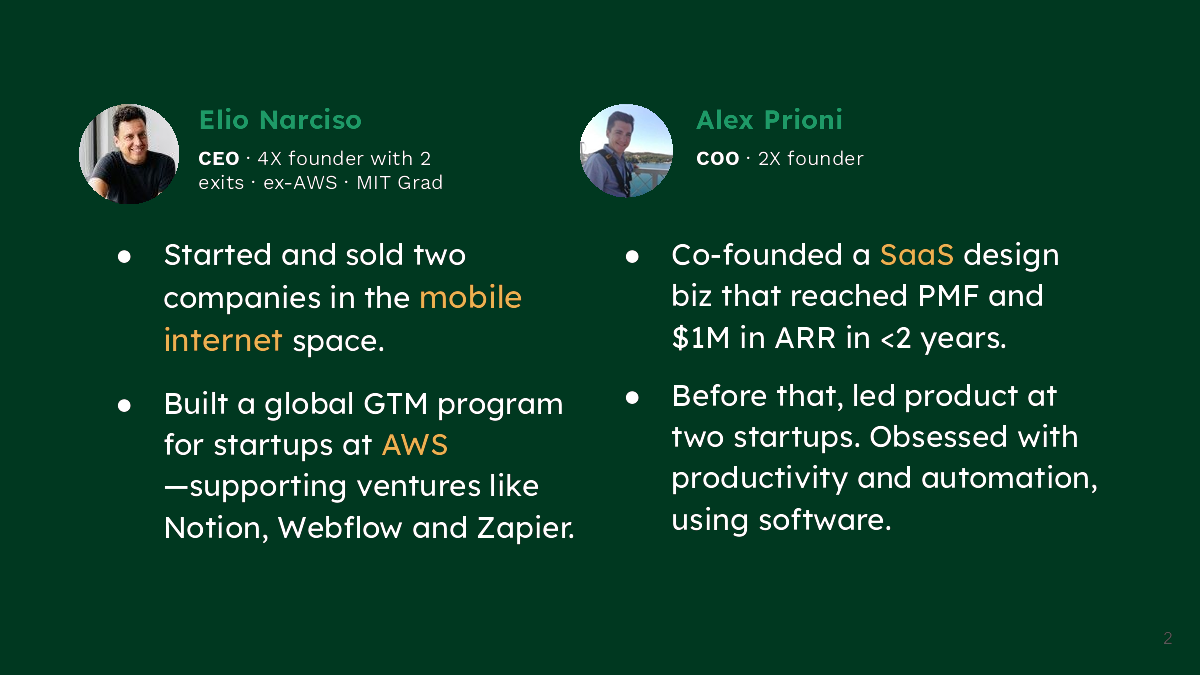
[Side 2] It’s awesome to see this company come out the gate unapologetically. Image Credits: Scalestack
You know what investors love? Founders with proven track records. This slide shows that its team is well-connected in the startup world and has operational experience to boot.
I’d have loved to see links to the founders’ LinkedIn profiles as well, but this works beautifully nevertheless.
Long-time readers might notice that this slide is missing something I often argue for on team slides: Founder-market fit. Nothing in these biographies screams “sales” or “AI” to me, so why am I so enthusiastic about this company? Well, that’s because it doesn’t matter when you click through to the next slide:
Traction for dayyyyssss
Your startup’s team is important, but traction will make up for all the sins you can imagine. It makes sense, then, that after a team slide that good, Scalestack follows up with a traction victory lap. The actual data is redacted, but you get the picture.

[Slide 3] Hyper growth shows the beginnings of product-market fit. Image Credits: Scalestack
Even with redacted numbers, this slide tells a hell of a story: Marquee customers, growing ARR and a strong pipeline. That checks a lot of boxes. The team will probably have been able to raise money with just these two slides, which is why I don’t give them that hard of a time for missing some important parts. Would it have been better to include all the data investors would be looking for? Sure, but if you have traction and a solid team, you’re 90% of the way there.
If you’re raising money, take a hard look at these two slides. That’s what you’re up against, even for a company raising “only” $1 million. Does your company look like that? If not, can you tell a story that has a similar refrain?
And if you can, will you be able to end the story with something this powerful?
A hell of a customer testimonial
Let’s get something straight: Customer testimonials are, by and large, vanity metrics that don’t tell the story by themselves. However, they can make for powerful narrative elements.
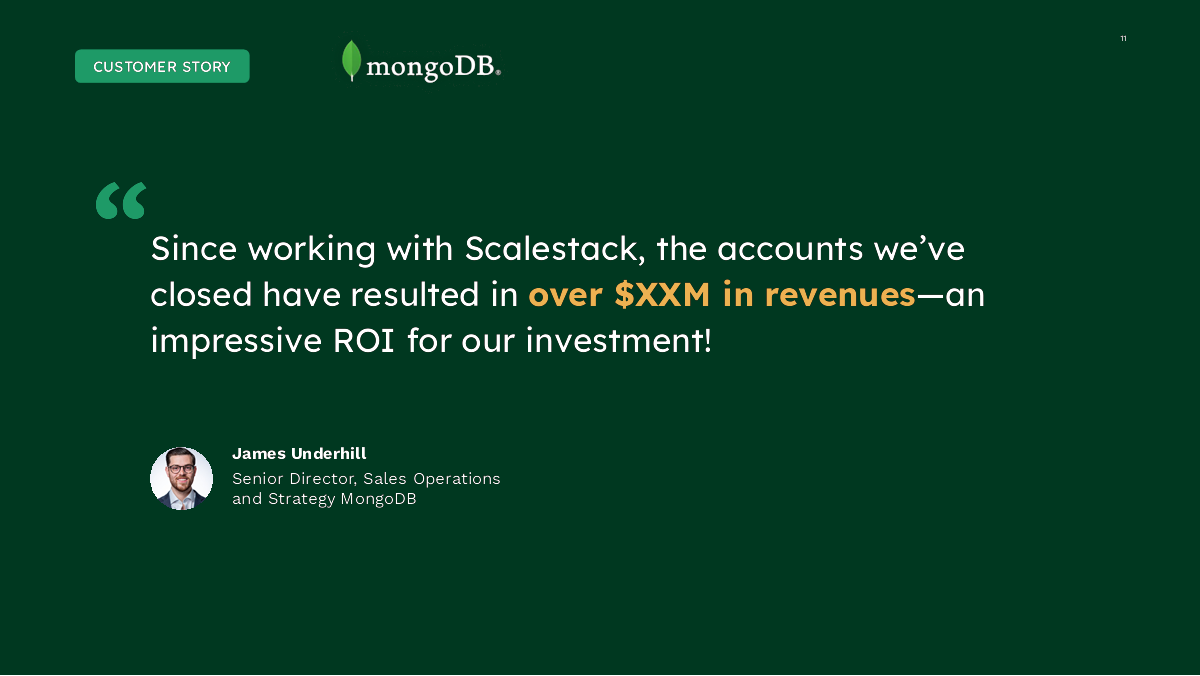
[Slide 11] This isn’t a testimonial as much as a “We made ourselves indispensable” slide. Absolutely baller. Image Credits: Scalestack
You’d better believe that if I were leading an investment in Scalestack, I’d want to have a chat with Mr. Underhill. If he’s just as enthusiastic about this company on the reference call as well, it’d go a long way to convincing me to invest.
Is it all perfect, though? Well, no. Objectively, this is not a very good pitch deck, because it’s missing some major parts of the pitch. So in the rest of this teardown, we’ll look at three things Scalestack could have improved or done differently, along with its full pitch deck!
[ad_2]
Source link

